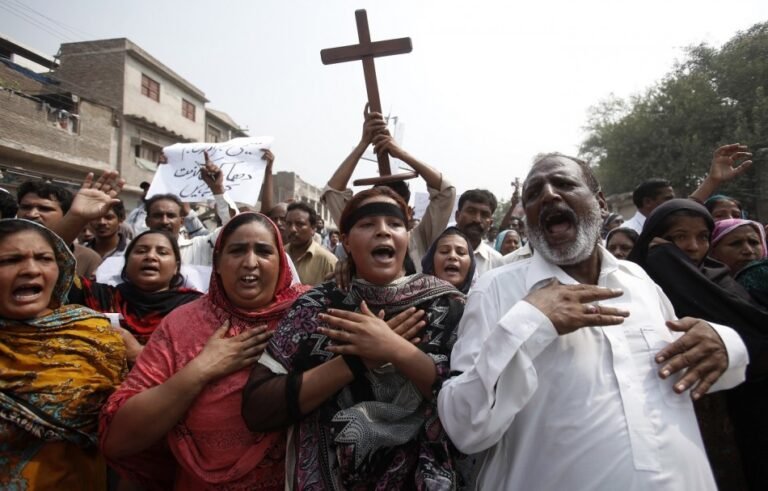
The harsh realities Apostasy in Pakistan highlight the urgent need for outside support towards the persecuted Christian minorities of Pakistan. There are several ways you can make a difference in their lives. You can donate to organizations supporting persecuted Christians, raise awareness about religious persecution in your community, write to your government representatives and organizations urging action on religious freedom, volunteer your time and pray for the safety and strength of persecuted believers.
To donate to the cause, you can provide a donation through our church. Financial contributions are critical in providing immediate relief and assistance to persecuted Christians.
To raise awareness about persecuted Christians and the challenges they are facing, you can share their stories through social media, community groups and personal networks. For this purpose, we have presented some real stories on our Testimonies page to tell to the world what the life of these Christians is like. This increased visibility can lead to greater support and more substantial changes in policy and humanitarian efforts.
Advocacy is equally important. Engage with local and international organizations that specialize in defending religious freedom. Write to your representatives, urging them to introduce or support legislation that provides asylum and protection for those fleeing religious persecution.
You can also offer your time to organizations working specifically with the cause of helping persecuted Christians. Volunteering not only helps affected individuals but also educates you and others about their experiences. Look for churches or community groups that facilitate fundraising events and outreach programs supporting persecuted Christians. Your contribution is more than just a financial gift; it is an act of solidarity and compassion.
And most importantly, you can pray for the churches and the persecuted believers of Pakistan, that they could have the safety and strength to withstand persecution. You can also pray that the message of Jesus, our saviour, would be heard in the Muslim world and would touch the hearts of people, so that the overall environment in these countries would change for the better.
Whether through financial donations, spreading their story, advocating for policy changes or prayer, every action contributes to a larger movement dedicated to securing freethinker and dignity for persecuted christians worldwide.